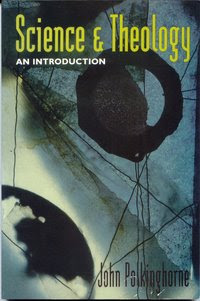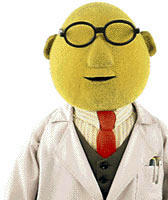
Humanity
"The issue of free will is a metaphysical issue and its resolution calls for a metaphysical decision. Many theologians will wish to treat as basic the human intuition of free will and responsible moral choice. There is nothing is contemporary science to forbid their doing so." (p. 58)
"There is a consensus among modern theologians that the third chapter of Genesis is not a literal account of a single disastrous primeval incident, but it is a myth (that is to say, not a falsehood but a truth conveyed in narrative form, because only story could carry the necessary depth of meaning. ...
Genesis 3 portrays this experience in the post-Eden life to which Adam and eve were condemned and it diagnoses its origin in a chosen alienation of humanity from God.
...
Such a view is clearly untenable today, considered as an historical account. Earthquakes, volcanoes, hurricanes, and animal death - all antedate the appearance of humanity on Earth by hundreds of millions of years." (p. 64)
Theism
"This feeling is induced by two insistent metaquestions to which we now turn: 'Why is the physical world so intelligible to us?' and 'Why are its laws so finely tuned to the possibility of a fruitful history?' Putting it more briefly, 'Why is science possible'and 'Why is the Universe do special?'" (p. 72)
Divine Action
"One should look for God's presence in the historical contingency (chance) as well as the regularity (necessity) of what is happening." (p. 84)
"Augustine and Boethius gave expression to the belief of classic theism that God perceives the whole of cosmic history 'at once', a timeless act of knowing by the One who is outside time altogether." (p. 90)
"It is scarcely surprising that classical theism endorsed the ineffable idea of primary causality." (p. 91)
"It is theologically incredible that God acts as a kind of celestial conjurer, doing occasional tricks to astonish people but most of the tie not bothering. Such a capricious notion of divine action is totally unacceptable. The main problem of miracle, from the theological point of view, is how such wholly exceptional events can be reconciled with divine consistency." (p. 92)
"Miracles as not to be interpreted as divine acts against the laws of nature (for those laws are themselves expressions of God's will) but as profound revelations of the character of the divine relationship to creation." (p. 93)
"The existence of moral evil is then seen to be the necessary cost of the existence of the greater good of human freedom and moral responsibility." (p. 94)
Christian Theology
"The purpose of this chapter, therefore, will be to illustrate how someone with the experience and habits of thought of a scientist approaches central questions of specifically Christian belief." (p. 97)
"The resurrection of Christ is not something that can be established beyond a peradventure, or understood in a completely straightforward way. If it happened, it is the most significant event in all history and it carries with it profound implications for who Jesus really was. If it did not happen, Christianity is either deluded or reduced to a kind of pious wishing that it had been so. It is not easy to say precisely what 'happen'means for so unique an event, but its significance turns on the truth or falsehood of the fundamental Christian claim that 'Jesus lives!' No one can convince the skeptical against their will, but there is both significant historical and theological motivation of the belief. It is a belief held by the writer of this book."
"There are times when one must cling to the strangeness of experience, resisting the temptation to deny part of that experience in order to achieve a facile, but unsatisfactory, relief from perplexity." (p. 109)
"Most theological thinking (indeed one might say, most profound thinking of any kind) is concerned with trying to steer a path between the errors that lie in the oversimplified extremes of a complex situation." (p. 113)
"Polkinghorne has emphasized that the empty tomb asserts that Christ's risen and glorified body is the transformation of his dead body, thereby implying a destiny in Christ for matter as well as for humanity." (p. 117)
"Theology's expression of its hope must be consistent with science's prediction of physical futility, but theology is entitled to look beyond that and to make use of insights derived from its own conviction of the faithfulness of God." (p. 118)
The Search for Knowledge and Wisdom
"Science provides opportunities foraction but it does not itself tell us how these opportunities should be used. It confers knowledge but not wisdom. In religion, however, belief is inseparable from praxis, for a religious understanding carries unavoidable implications for conduct." (p. 129)
"A most significant aspect of the interaction between science and theology is the latter's provision of a ground for the ethical guidelines within which the great endeavour of science and technology can only rightly be pursued" (p. 133)



No comments:
Post a Comment